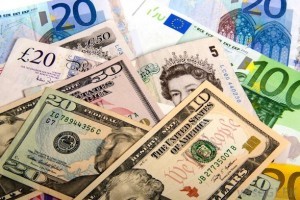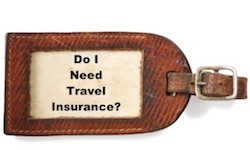7 Currency Exchange Tips for International Travelers
 One of the most often forgotten topics to consider when traveling internationally is the whole subject of currency exchange.
One of the most often forgotten topics to consider when traveling internationally is the whole subject of currency exchange.
When you travel to a foreign country, you must provide payment in their local currencies. If you aren’t careful, there can be so many hands in the currency exchange pot that you simply wind up getting ripped off without even knowing it until you get home.
Therefore, with foreign currency exchange, it’s buyer beware!
7 Money-Saving Currency Exchange Tips for International Travelers
- Bring some foreign currency with you – once you touch ground in your destination, you are going to find yourself needing local currency for tips as you make your way to your hotel room. Obtaining this initial foreign currency is best done at home with your local bank. If you wait to use the currency exchange booths in the airports, you will pay considerably more in fees, and in the exchange rate. Some banks will charge you a small service fee for this transaction and will make for themselves a nice little profit in the actual exchange rate they give you. Don’t stress about this; we only suggest that you bring a couple of hundred bucks with you as you will be doing the rest of your currency exchanging overseas. Also, if you can, get this currency in small denominations as you’ll be using it primarily for tips.
- Use your ATM card for overseas currency – once you arrive at your destination, the best and easiest way to obtain cash is using your debit card in an ATM machine. You will find ATM machines abundantly available in metropolitan areas. We also recommend that you only use bank ATM machines. Stand-alone ATM machines found in populous shopping areas are more prone to identity theft.
-
Notify your bank and credit card company before traveling internationally – trust me, it’s no fun being overseas and not having any money in your pocket. Many banks have security provisions on their debit and credit cards to prevent overseas charges. Therefore, it is critically important that you let them know that you will be traveling internationally. This way they can remove the international block on your debit and credit cards. There’s nothing worse than calling back to the U.S. trying to get your debit and credit cards to work while overseas.
- Make purchases with your credit card – you will obtain the very best exchange rates by using your credit cards for all purchases while overseas. Keep your cash to a minimum, and use your credit card wherever you can.
- No-foreign-fee credit cards – credit card companies are going to treat your credit card currency exchange requests the same as your bank. Most will charge a fee (0-3%), as well as making a profit in the actual exchange rate. If you are frequent international travelers, then you may want to consider a credit card that charges no international transaction fees. This will save you quite a bit of money in fees.
- Always make purchases in local currency – it is becoming very common for overseas restaurants, hotels, and retail outlets to ask you if you would like to make your transition in U.S. dollars. While this sounds like the wise thing to do, in fact, you have just added another hand in the cookie jar with yet another currency exchange. This is called dynamic currency conversion. Always decline this request, and save yourself from getting ripped off with a god-awful exchange rate from the merchant.
- Use a currency conversion app on your smartphone – when you’re shopping in a foreign country, don’t leave the currency exchange math to be done in your head. To find a free currency conversion app for your smartphone, search your phone’s App Store.
Listen, if you don’t pay attention to these matters before traveling overseas, you will find yourself wasting hundreds of dollars in fees and bad exchange rates. As I said above, with foreign currency exchange, it’s buyer beware!
If you enjoyed this article, sign up for our monthly newsletter to keep abreast of our best travel tips, on-location reviews, exclusive travel offers, group travel events, and much more.

 The Roaming Boomers
The Roaming Boomers





Thanks so much for the clue on charge card options in a foreign country, (USD vs Local) I did not know what to choose when on my last trip and probably did 1/2 and 1/2 . Well, I know for next time to only go to local currency when offered an option for the charge card.It was interesting, in Denmark they want you to charge everything on cards, in Germany they don’t want charge cards for small purchases. Every place is different!Thanks
Hi Steve and Liz,
We spent three days in Iceland once and never used the local currency–all on credit cards. Even vending machine purchases went on the card. I intended to get a $100 or so in Icelandic currency, but as our trip wore on I realized it wasn’t going to be necessary.
Hi Bill,
Here is a tip for the end of a trip – After you determine how much cash you need at the airport or want to take home, use the rest of your local currency to pay a portion of your final hotel bill. This is a no exchange fee way to get best value for that money.
Hi Al. Thanks for the tip. I like it.
I would add using an ATM card with no foreign transaction Fees and reimburses the local ATM fee. Without those features foreign ATM costs can add up fast
Thanks for sharing.
Since your article is about “best” practices, it’s understandable for you not to mention any of the “worst” practices. One of those would be exchanging money at an airport kiosk. At most of those, you get the double whammy of a terrible exchange rate and an exorbitant exchange fee. My experience in Africa however, has been quite different. I have exchanged money in South Africa, Namibia, and Malawi, so other countries may (and probably are) different, but I’ve found in those 3 countries you actually get competitive rates at the airport! In fact, in Malawi the airport exchange kiosks are run by the banks, so you get their rate, and they compete with each other for the lowest rate, and there’s no exchange fee. As an added bonus, you can get small bills there (and even coins, but who wants those?). Beware though — they’ll only accept “newer” bills (for US $100 bills, it’s Series 2013 and newer), and none with any damage. As a side note, I’ve exchanged small amounts a couple times in Malawi at the hotel front desk, and they’ve had a reasonable exchange rate. Normally I’d say a hotel front desk or concierge would be one of the worst places to exchange, but that wasn’t the case at the hotels where I tried it (one was a Sunbird hotel; one was independent).
Thanks for sharing.
Great tips, thank you! We ordered Hungarian forints and EU euros ahead of time so we will have some local currency to use when we arrive. I will be sure to request paying in the local currency when using our credit card(s). Now to find a currency conversion app for my iPhone…